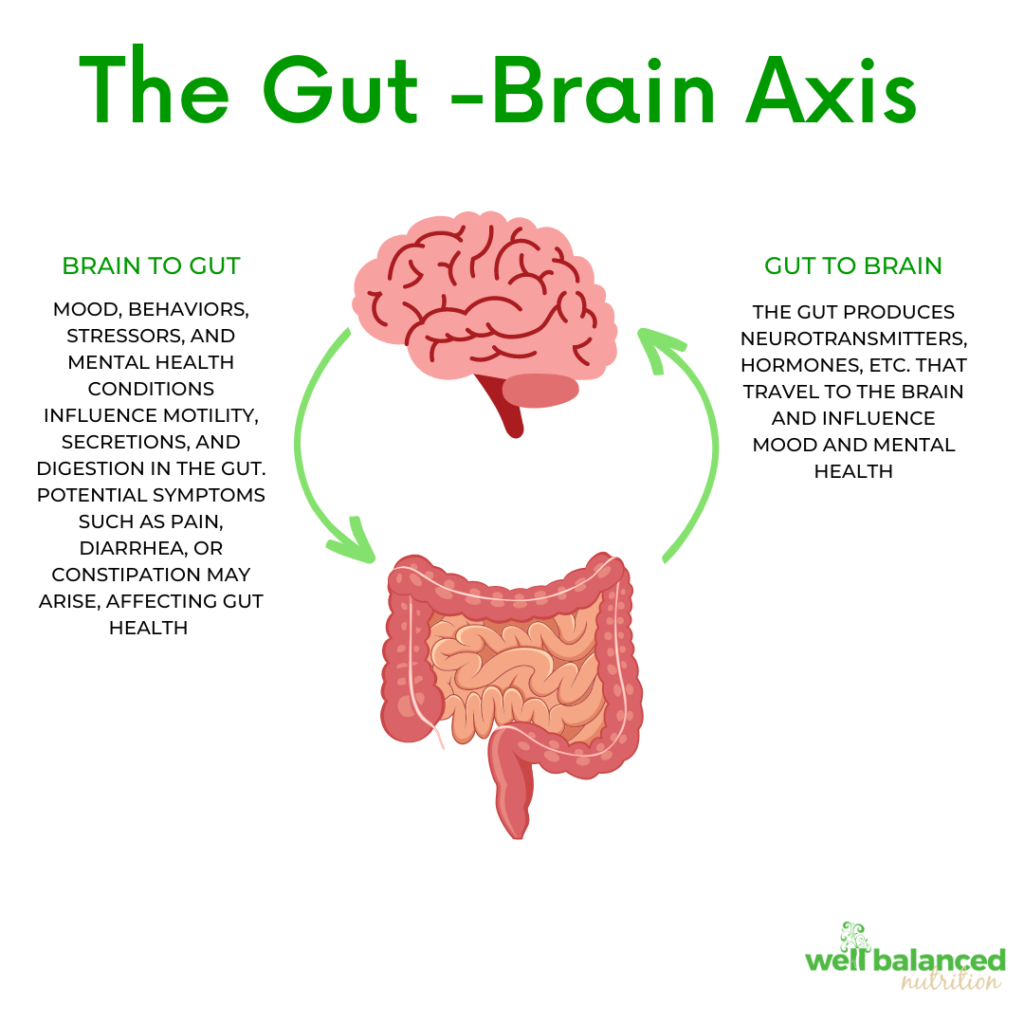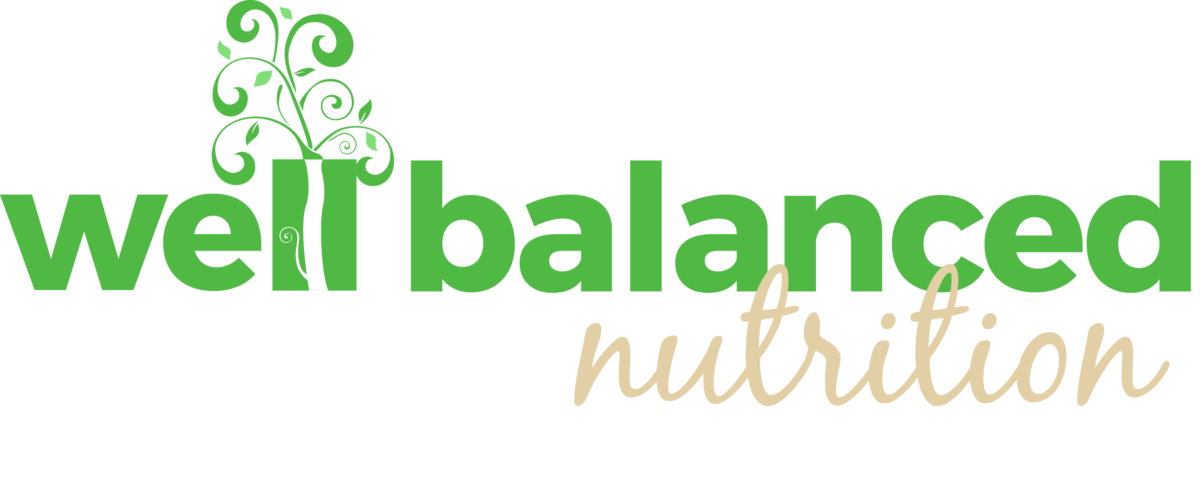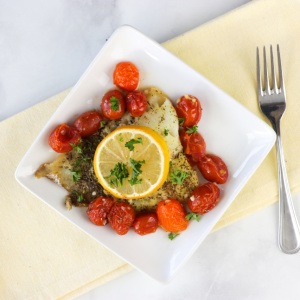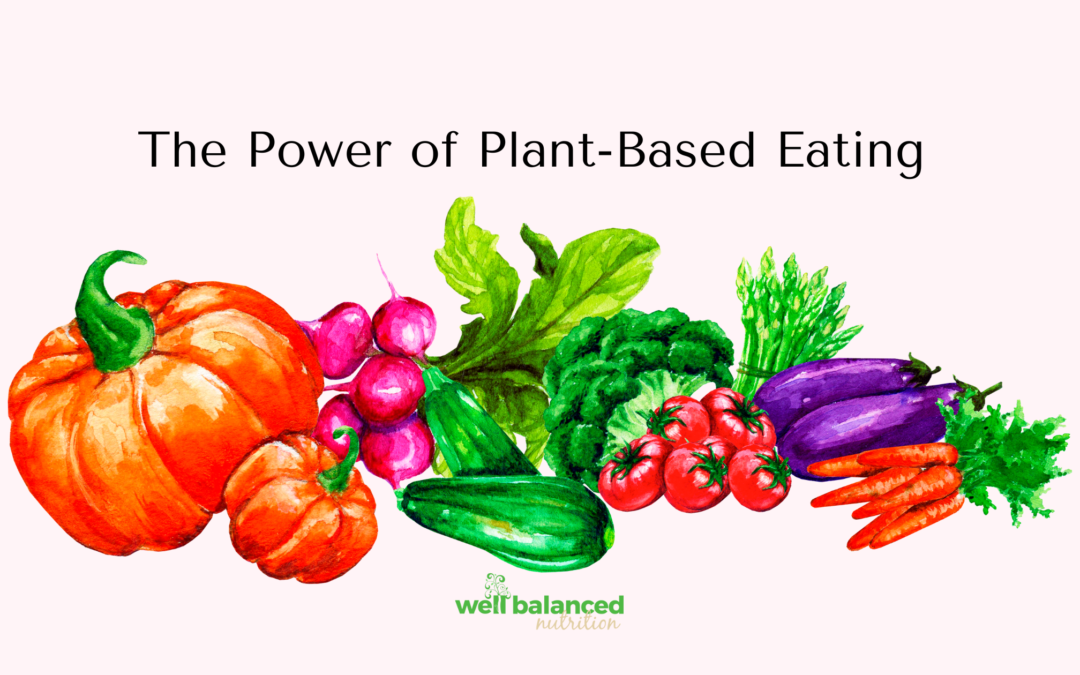May is National Mental Health Month, giving us the opportunity to discuss how food impacts mood.
Nutrition and mental health are closely intertwined. Studies have shown that what we eat can have a significant impact on our mental well-being. In this blog, we will explore the relationship between nutrition and mental health, and provide some tips on how to improve your diet to support your mental health.
The Link Between Nutrition and Mental Health
The gut is often referred to as the “second brain”. A vital component of gut (and overall health) is the microbiome. The gut microbiome is defined as the trillions of microbes (such as bacteria, viruses, and fungi) living in our intestines. Gut microbes produce substances (hormones, messenger molecules, neurotransmitters, etc.) that enter our blood vessels and travel to the brain, impacting our mood. These microbes act as messengers, interacting directly with the central nervous system and the communication between the two is commonly referred to as the gut-brain axis. Just as the gut influences the brain, the brain influences the gut. Our mental state can play a huge role in digestion and motility. During times of heightened stress or anxiety we may experience an upset stomach or constipation.

But, how is food connected to this? Our food choices determine the type of bacteria in our gut which in turn influences the messages sent to our brain, thanks to the gut-brain axis. If we eat foods that promote healthy bacteria, our gut will communicate messages to the brain that improve our mood and vice versa. But, it doesn’t stop there. Certain nutrients, such as omega-3 fatty acids, B vitamins, and antioxidants, are essential for the production of neurotransmitters in the brain, which regulate our mood, emotions, and behavior.
Nutrition Tips That Will Support Your Mental Health
1. Eat a Balanced Diet
The best way to ensure that you are getting all the nutrients your body needs is to eat a balanced diet that includes a variety of different foods. The saying “eat the rainbow” has never been more accurate. Aim to incorporate a rainbow of fruits and vegetables, as well as whole grains, lean proteins, and healthy fats. A diverse microbiome is a healthy one, and a healthy gut promotes a healthy brain.
2. Include Omega-3 Fatty Acids
Omega-3 fatty acids are essential for brain health, and have been shown to be particularly effective in reducing symptoms of depression and anxiety. You can get omega-3s from fatty fish like salmon and tuna, as well as from nuts and seeds like walnuts and flaxseed.
3. Get Enough B Vitamins
B vitamins are important for the production of neurotransmitters in the brain. You can get B vitamins from a variety of different foods, including whole grains, leafy greens, nuts and seeds, and lean proteins.
4. Limit Processed Foods
Processed foods (candy, hot dogs, certain frozen entrees, etc.) can contribute to inflammation in the body, which has been linked to mental health problems. Try to enjoy these foods in moderation, focusing on whole foods as much as possible.
5. Add in Fiber
Fiber is not digested by our bodies, it is digested by our gut bacteria and they love it! Fiber ferments in our gut, producing short chain fatty acids (SCFAs). SFCAs are important for our hormonal health, immune system, and brain behavior. High fiber foods include legumes (beans, peas, lentils), broccoli, nuts and seeds, berries, pears, apples, avocado, carrots, artichokes, whole grains, and much more.
6. Enjoy Fermented Foods
Fermented foods can benefit the microbiome by optimizing its function by supplying and promoting the growth of beneficial bacteria. Examples of fermented foods include yogurt, kefir, sauerkraut, kimchi, kombucha, tempeh, and miso.
If you are looking to implement any or all of these 6 strategies to improve your mental and physical health, your friendly Well Balanced dietitians are here to help.
Sources:
1. Elizabeth Pennisi. May. 7, 2020. “Meet the ‘Psychobiome’: the Gut Bacteria That May Alter How You Think, Feel, and Act.” Science, American Association For The Advancement of Science , 11 May 2020, www.sciencemag.org/news/2020/05/meet-psychobiome-gut-bacteria-may-alter-how-you-think-feel-and-act.



